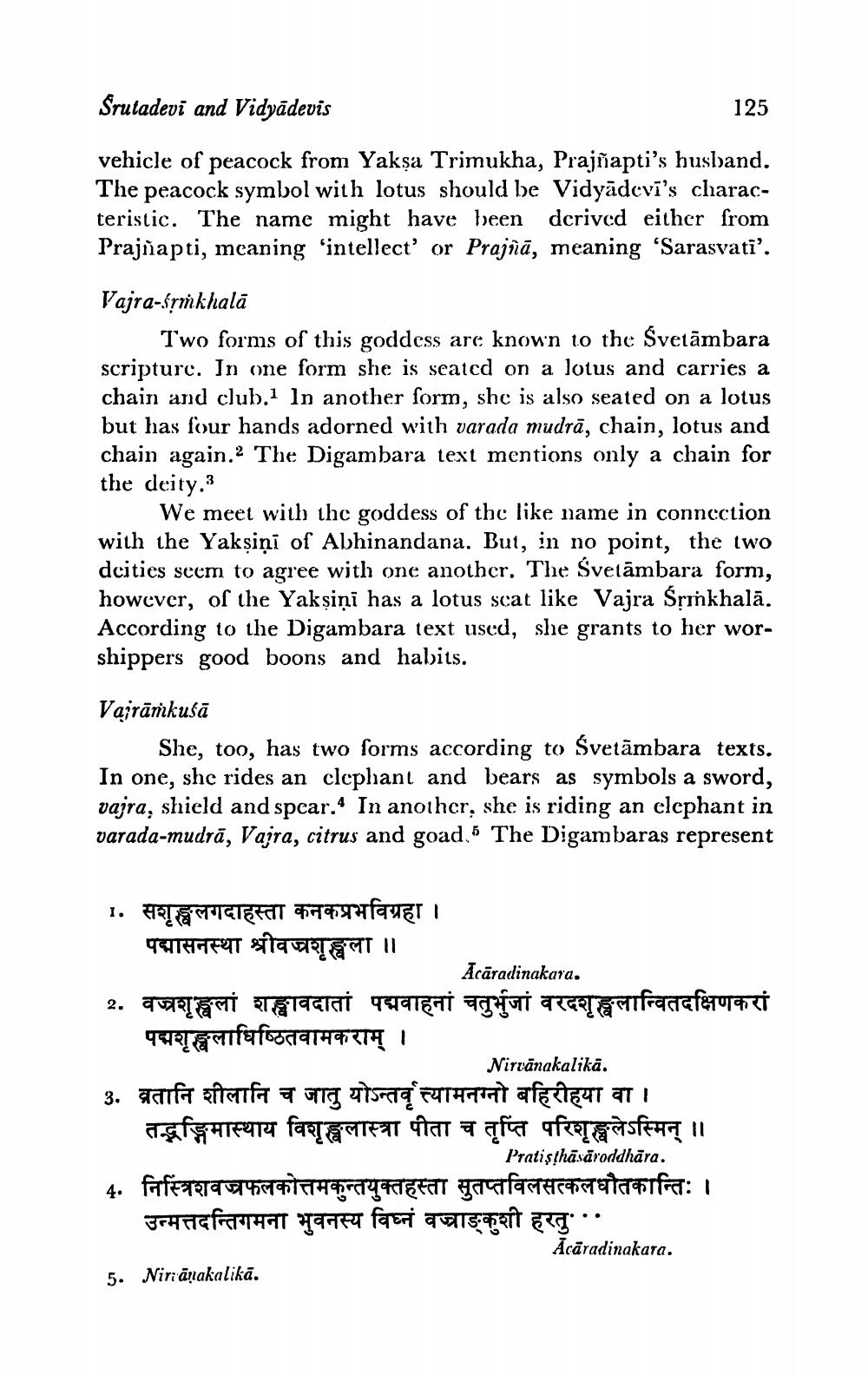________________
Srutadevi and Vidyādevis
125
vehicle of peacock from Yaksa Trimukha, Prajñapti's husband. The peacock symbol with lotus should be Vidyādevi's characteristic. The name might have been derived either from Prajnapti, meaning intellect' or Prajna, meaning 'Sarasvati'.
Vajra-śrmkhala
Two forms of this goddess are known to the Svetāmbara scripture. In one form she is seated on a lotus and carries a chain and club. In another form, she is also seated on a lotus but has four hands adorned with varada mudrā, chain, lotus and chain again.2 The Digambara text mentions only a chain for the deity.3
We meet with the goddess of the like name in connection with the Yaksini of Abhinandana. But, in no point, the two dcities seem to agree with one another. The Śvelāmbara form, however, of the Yakşiņi has a lotus scat like Vajra Srinkhalā. According to the Digambara text used, she grants to her worshippers good boons and habits.
Vairāṁkušā
She, too, has two forms according to Svetāmbara texts. In one, she rides an clephant and bears as symbols a sword, vajra, shield and spear. 4 In another, she is riding an elephant in varada-mudrā, Vajra, citrus and goad,5 The Digambaras represent
1. सशृङ्खलगदाहस्ता कनकप्रभविग्रहा । पद्मासनस्था श्रीवज्रशृङ्खला ॥
Acāradinakara. 2. वज्रशृङ्खलां शङ्खावदातां पद्मवाहनां चतुर्भुजां वरदशृङ्खलान्वितदक्षिणकरां पद्मशृङ्खलाधिष्ठितवामकराम् ।
Nirvanakalika. 3. व्रतानि शीलानि च जातु योऽन्तर्वृत्त्यामनग्नो बहिरीहया वा । तद्भङ्गिमास्थाय विशृङ्खलास्त्रा पीता च तृप्ति परिशृङ्खलेऽस्मिन् ।।
Pratisthāsāroddhāra. 4. निस्त्रिशवज्रफलकोत्तमकुन्तयुक्तहस्ता सुतप्तविलसत्कलधौतकान्तिः । उन्मत्तदन्तिगमना भुवनस्य विघ्नं वज्राङ्कुशी हरतु...
Ācāradinakara. 5. Niriānakalikā.




